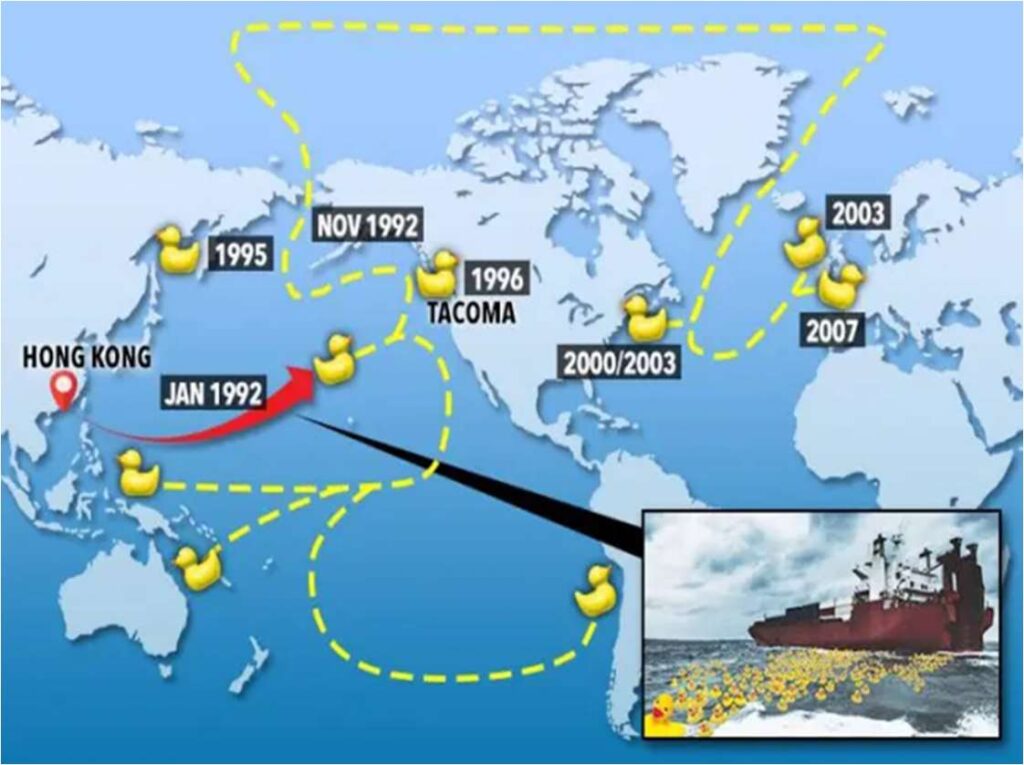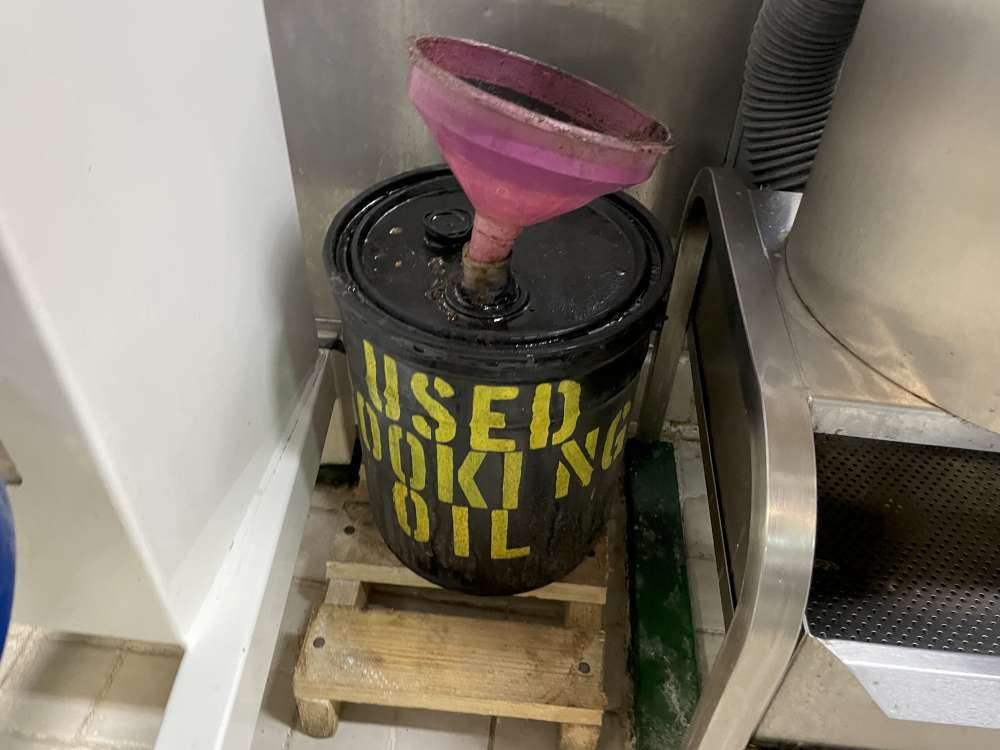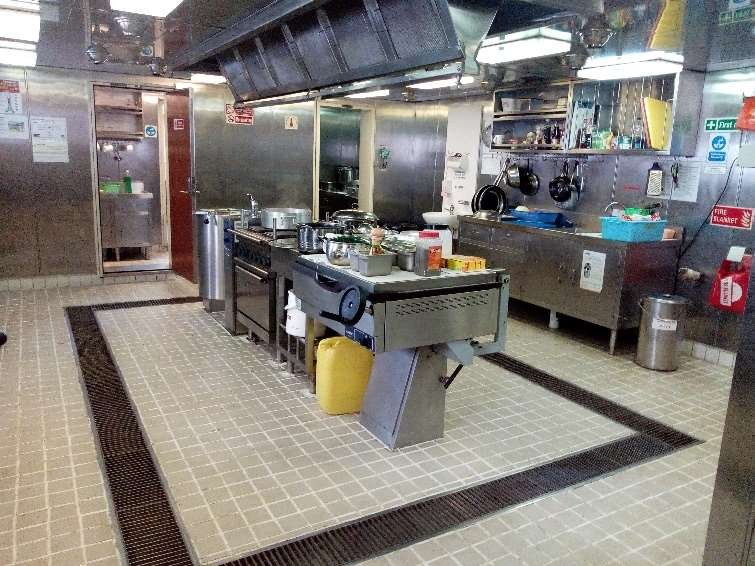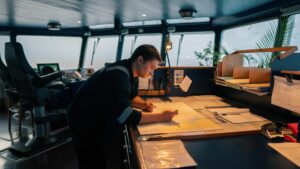Improper Garbage Management is a global risk. Let us delve into the details of Garbage Management on board.
It is the worst of times, but it is the best of times because we still have a chance.
Sylvia Earle, world-renowned oceanographer on plastic pollution.
Surely, we have a chance. It is up to all of us who understand the magnitude of marine pollution to explain to our fellow seafarers who, at times, are just ignorant. I feel the Gen Z seafarers understand but need someone who could guide and mentor them.
The incident of floating ducks
On one of the ship visits, I overheard the conversation of two first trippers.
“If we throw one plastic bottle in the ocean, what difference would it make?”

A few minutes later, during the coffee break, I struck up a conversation with them. I asked, “Do you go for a swim or an evening stroll at your local beach?” Both of them said yes, which is when I shared the Ever Laurel incident with them.
In 1992, Ever Laurel was caught in a storm in the North Pacific Ocean. Unfortunately, 12 containers went overboard; one of those containers had a shipment of nearly 30,000 rubber ducks. Years later, these rubber ducks kept getting washed away in various parts of the world, all the way from Australia to Europe! The incident was infamously called the ‘Friendly Floatees spill’.
The young lads were fascinated to see the journey of the rubber ducks. They had never imagined ocean debris could travel so far. They realised that if they throw garbage, especially plastics, it may land on our own beaches.
Is Ignorance a bliss?
In today’s world, with stringent garbage management regulations in place, if we are ignorant of procedures, our jobs are at risk. In some cases, it may even lead to imprisonment. We cannot afford to be ignorant of regulations or be complacent in our jobs.
When we interview the chief cook or junior engineers, we often realise that we enforce procedures on them without explaining the reason. It turns out that once they understand why it should or should not be done, it becomes much easier for them to comply with it.
Garbage Management: Cooking Oil
A simple example is the used cooking oil. Most of the time, the cook and the junior engineers are not aware of the right way to dispose of the waste cooking oil. Some blindly declare that they send it ashore but, upon questioning, are not aware of the reason.
It’s important to know why and also the right procedure for disposal.
Our App, Guide2Inspections, can help ensure every person on board adheres to relevant regulations and guides them into proper systems of management.

Disposal of cooking oil onboard
Cooking oil, in most cases, is collected and delivered to a port reception facility.
Earlier, in some cases, it used to be incinerated. On some ships, it was routine to mix the cooking oil with sludge and treat it as sludge. However, MEPC 68 decided that this was not in line with MARPOL Annex V (MEPC 68/21 paragraph 12.14 (MEPC, 2015)
Let us imagine a few scenarios and understand their legal implications.
Scenario 1 Cooking oil mixed in the oily bilge system.
Here is the catch: if this cooking oil passes through the oil-water separators, this means that Annex V waste is being mixed with the oils specified in MARPOL Annex I. If this is the case, the vessel is running the risk of a port state control detention.
MEPC.107(49) Section 1.2.4 clearly states the various fuels that could pass through the OWS, which are:
i) A-Marine Residual Fuel Oil
ii) B- Marine Distillate Fuel Oil
iii) Mixture of A, B and detergent
As of now, waste cooking oil is not part of the current standards. In case of an incident, we would not have any standing in a court of law.
Scenario 2 Cooking Oil burnt in the ship’s incinerator.
The waste cooking oil can be burned in the incinerator. However, we must ensure no water/oil drainage facility back to the engine room bilge system.
Scenario 3 Cooking Oil sent ashore.

This is the ideal and the easiest to comply with: collect the waste oil in a can (marked and colour-coded) as per the vessel garbage management plan, and it’s landed ashore for disposal; we must ensure we get a receipt. Look at the Yellow can, as shown in the adjacent picture, being used as a storage container.
On large cruise liners, they have separate tanks with large capacities (up to 1,000 m3) for the storage of waste cooking oil. The used
oil is sent to a port reception facility and is used in the production of biofuel.
Conclusion
In conclusion, we must keep spreading awareness and training regarding garbage management; it must just not be a mere tick-box exercise. Next time onboard, ensure you check with the chief cook and junior engineers why we send the waste cooking oil ashore for
disposal.
We live on a planet where 71% is covered with water.
To break the numbers down, 96.5% of all the earth’s water is contained within the oceans. Let’s protect and keep our oceans clean.






